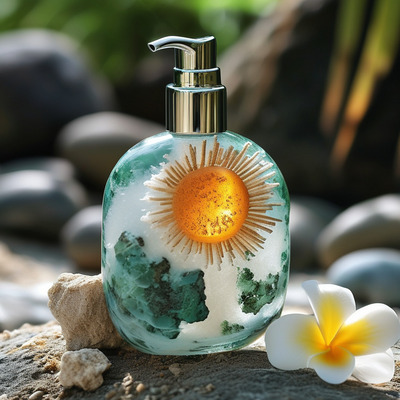 ISO 24444 / ISO 24443
ISO 24444 / ISO 24443 EU COLIPA and SANS 1557 Verified Broadspectrum Sunscreens

In the realm of sun protection, mineral sunscreens have emerged as a game-changer, offering a plethora of benefits that go beyond mere UV defense. Also known as physical sunscreens, these innovative products harness the power of natural minerals to create an effective barrier against harmful solar radiation. Unlike their chemical counterparts, mineral sunscreens work by reflecting and scattering UV rays, providing immediate protection upon application.
At Koola Sun, we believe in the superior protection and gentleness of mineral-based formulations for your skin and the environment. Our mineral sunscreen range combines cutting-edge technology with nature's protective elements.

At the heart of mineral sunscreens lie two primary active ingredients: zinc oxide and titanium dioxide. These naturally occurring compounds have been used for centuries in various skincare applications, but their role in sun protection has been revolutionary. When applied to the skin, these minerals form a physical barrier that acts like countless tiny mirrors, bouncing harmful UV rays away from your skin's surface.
This unique mode of action sets mineral sunscreens apart from chemical sunscreens, which work by absorbing UV rays and converting them into heat. The physical barrier provided by mineral sunscreens offers several advantages, including immediate effectiveness and reduced risk of skin irritation.
Mineral sunscreens offer more than just sun protection; they're a boon for overall skin health. The gentle nature of zinc oxide and titanium dioxide makes these sunscreens an excellent choice for those with sensitive skin, rosacea, or eczema. Unlike some chemical sunscreens that can cause stinging or burning sensations, especially around the eyes, mineral sunscreens are typically well-tolerated even by the most delicate skin types.
Moreover, zinc oxide, one of the primary ingredients in mineral sunscreens, boasts natural anti-inflammatory properties. This means that while protecting your skin from UV damage, it's also helping to soothe and calm irritated skin. For individuals prone to acne or breakouts, the non-comedogenic nature of mineral sunscreens ensures that pores remain unclogged, reducing the risk of blemishes.
In recent years, the environmental impact of sunscreens has come under scrutiny, with studies showing that certain chemical UV filters can harm marine ecosystems, particularly coral reefs. This has led to the rise of "reef-safe" sunscreens, a category where mineral sunscreens shine.
Zinc oxide and titanium dioxide, the active ingredients in mineral sunscreens, are naturally occurring compounds that don't pose a significant threat to marine life. When you choose a mineral sunscreen, you're not only protecting your skin but also playing a part in preserving delicate underwater ecosystems. This makes mineral sunscreens an excellent choice for environmentally conscious consumers and a must-have for beach vacations or water activities.
While mineral sunscreens offer numerous benefits, proper application is crucial to ensure optimal protection. Here are some tips to make the most of your mineral sunscreen:
As research continues and technology advances, mineral sunscreens are likely to become even more effective and user-friendly. Innovations in formulation are already producing mineral sunscreens with lighter textures and minimal white cast, addressing some of the traditional concerns associated with these products.
The growing awareness of the importance of sun protection, coupled with increasing consumer demand for natural and environmentally friendly products, positions mineral sunscreens at the forefront of the sun care industry. By choosing a mineral sunscreen, you're not just making a choice for your skin health today, but you're also investing in a sustainable approach to sun protection for the future.
Remember, while mineral sunscreens offer excellent protection, they should be part of a comprehensive sun safety strategy that includes protective clothing, seeking shade, and avoiding peak sun hours. With the right approach, you can enjoy the outdoors safely while keeping your skin healthy and radiant for years to come.
At Koola Sun, we're proud to offer a range of mineral sunscreen products designed to provide optimal protection while caring for your skin and the environment. Our formulations combine the power of zinc oxide and titanium dioxide with nourishing ingredients to create effective, gentle sun protection for all skin types.
Discover our premium mineral sunscreen range and give your skin the natural protection it deserves. Contact our sun protection experts for personalized recommendations:
View Our Mineral Sunscreen Products Compare Mineral vs Chemical Sunscreens